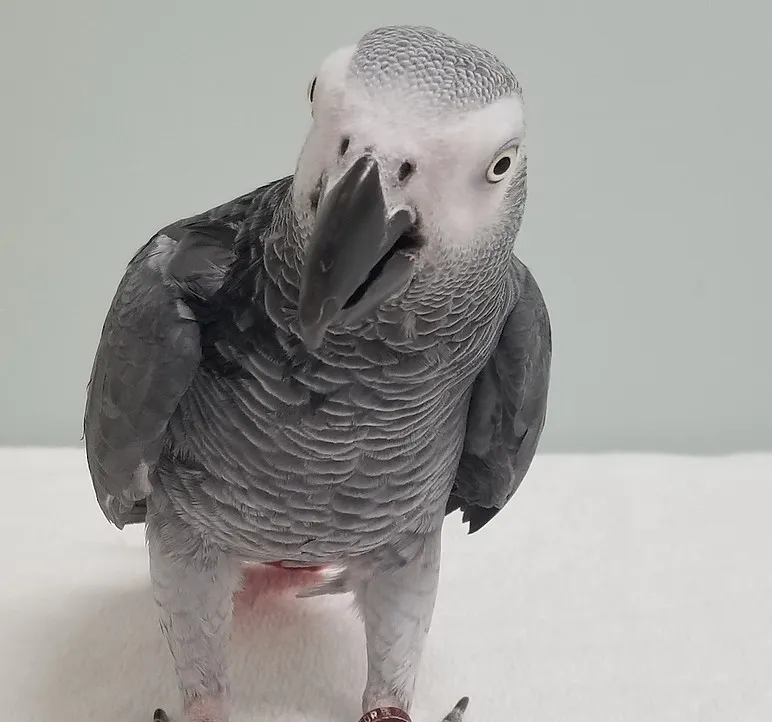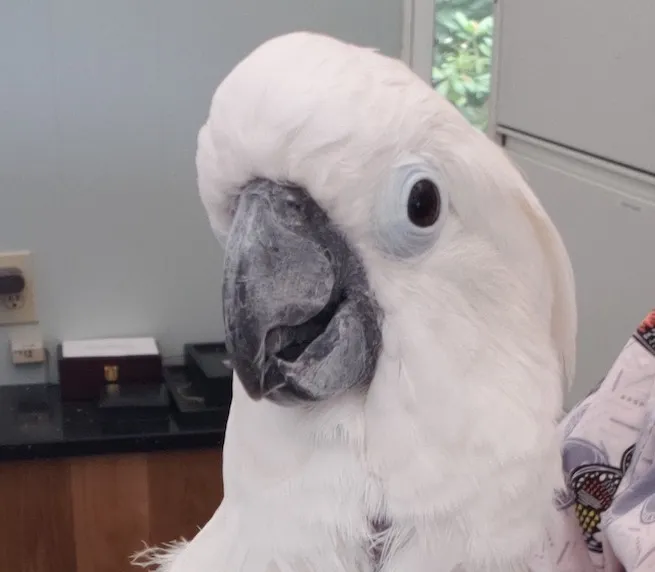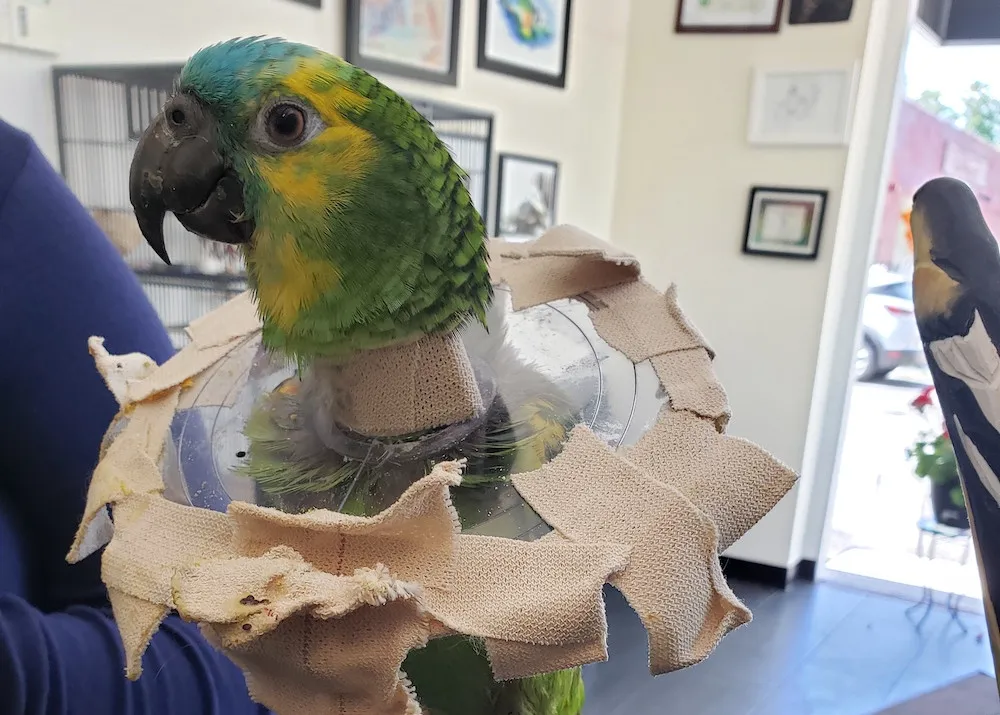Parrots, with their vibrant plumage and intelligent personalities, are cherished companions in many homes. There are over 350 species globally, and their social nature combined with a potential lifespan of up to 70 years for larger species, makes them a significant, long-term commitment. Providing exceptional husbandry, a balanced diet, and appropriate veterinary attention is paramount to ensuring your feathered friend thrives physically and mentally. Understanding all aspects of Parrot Health Care is a necessity for current and prospective owners, laying the foundation for a loyal and healthy relationship that can last for decades.
Parrots are renowned as some of the most intelligent animals, captivating humans for over 5,000 years. Their evolutionary history traces back to the Jurassic Period, sharing a taxonomic group with theropod dinosaurs. Modern birds, belonging to the biological class Aves, include the order Psittaciformes—the source of the term “Psittacines” used to describe parrots. Primarily found in tropical and subtropical regions like Australia, and South and Central America, they inhabit all continents except Antarctica.
Different parrot species have unique needs. While all share traits like curved beaks and zygodactyl feet, specific environmental, dietary, social, and medical requirements vary significantly. Popular pet parrots include smaller birds such as Budgies, Cockatiels, Lovebirds, and Conures, as well as larger species like African Greys, Amazon Parrots, and Macaws. When considering a parrot, factors such as the age and experience of household members, available space, and time for socialization are crucial in selecting the right species for your home and ensuring optimal parrot health care.
Providing a Healthy Environment: Housing and Enrichment
Creating an enriching and safe environment is fundamental to parrot health. In the wild, parrots are active and dynamic; replicating this at home is vital for their happiness and well-being. While supervised outdoor time can be beneficial, bringing birds indoors or securing them in predator-proof enclosures at night is essential. Uncaged time should always be supervised, as parrots are naturally curious and prone to getting into trouble around the house. They require at least one supervised outing from their cage daily for exercise, enrichment, and social interaction, which are critical components of their overall health.
Choosing the Right Cage for Your Parrot’s Health
The size of your parrot’s cage directly impacts its physical and mental health. A small Budgerigar requires a considerably smaller cage than a Hyacinth Macaw. The cage must be large enough for your bird to fully stretch both wings without touching the sides, and its tail should not touch the bottom. Birds should also be able to fly between perches to promote exercise and mental stimulation. This ample space is crucial for preventing stress and promoting physical fitness.
The material of the cage is equally important. Avoid decorative cages not designed for birds, as they often cannot withstand a parrot’s powerful bite or are made with toxic materials. Cages with removable coatings on bars should be avoided due to the risk of ingestion. Lead and zinc are highly toxic to birds, so ensure the cage material is free from these elements. Cages with very small, thin wires and tiny gaps can also lead to injuries. Prioritizing a bird-safe, robust cage is a key aspect of preventive parrot health care.
Cage Setup and Maintenance for Optimal Hygiene
In their natural habitat, birds can move away from their waste. In captivity, parrots are highly sensitive to waste products, molds, and airborne irritants. Daily cleaning of food and water bowls, including washing them before refilling, is crucial for preventing mold exposure. Offering smaller, controlled portions of food minimizes waste and keeps the cage cleaner. Water dishes should be changed as often as necessary to ensure a constant supply of clean water.
The bottom of the cage, where most feces and food remains accumulate, should be cleaned daily. Most cages feature a grate above a removable tray. The tray should be lined with a disposable material like paper towels, with the grate positioned above it. A thorough deep cleaning of the entire cage, including all wires, perches, toys, and crevices, should be performed at least once weekly, or more frequently if needed. Perches and toys should be replaced when dirty or destroyed, especially natural material toys that are difficult to sanitize properly. This rigorous cleaning routine is vital for preventing bacterial and fungal infections, supporting overall parrot health care.
 A friendly parrot perched on a person's hand, looking alert and engaged, showcasing interaction.
A friendly parrot perched on a person's hand, looking alert and engaged, showcasing interaction.
Parrot Enrichment and Exotic Bird Toys for Mental Well-being
A variety of perches, in at least three different sizes and varying materials, should be provided. Offering options not only caters to a bird’s preferences and introduces daily variation but also encourages exercise and diverse physical orientations. Some birds may prefer specific perches for chewing, others for grooming their beaks, and some for simply resting. This diversity contributes to both physical and mental health.
Toys are essential for keeping a bird mentally stimulated, preventing boredom, and ensuring happiness. Toys should be made only from natural materials such as bird-safe paper, untreated wood, and raffia. Metal, rubber, or plastic toys should be avoided as they are easily destroyed and can be ingested, potentially exposing the bird to lead or zinc toxicity. These toxicities can lead to severe illness and may even be fatal. Ensuring a constant supply of safe, enriching toys is a crucial aspect of comprehensive parrot health care. You can find more details on enriching your bird’s environment by checking out bird enrichment tips.
Strategic Cage Placement to Prevent Health Hazards
The location of your parrot’s cage within the home significantly impacts its health. Kitchens should be avoided, especially for those who cook frequently. Kitchens pose numerous dangers: parrots, naturally curious, can get caught on hot stoves, fall into pots, treat utensils as toys, or inhale fumes toxic to birds. Non-stick/Teflon pots and pans, in particular, emit fumes that can be rapidly fatal to birds. Smoke from heavy cooking can also cause respiratory issues.
Additionally, avoid placing cages directly next to a window, where birds can be exposed to intense sun rays or drafts. Laundry rooms or areas with molds, heavy aerosol, or perfume usage should also be avoided, as these can cause respiratory irritation and other health problems. Choosing a safe, stable environment free from these common household hazards is a critical part of maintaining good parrot health care. For specific concerns about respiratory health, understanding budgie medicine for cold might offer relevant insights.
Temperature, Humidity, and Their Impact on Parrot Health
Parrots are found on every continent except Antarctica, predominantly in ambient to warm climates. This natural history dictates the importance of stable temperatures in their home environment. Cages should be placed in areas of the home that are not subject to rapid or drastic temperature fluctuations. A good starting point, if unsure of your specific parrot species’ native temperature range, is to keep their area above 70 degrees Fahrenheit (21 degrees Celsius).
Caution must be exercised with space heaters, as some materials, like Teflon, can emit toxic fumes. Only use bird-safe heaters specifically designed for pets. Humidity is another vital factor for parrot health. In the wild, parrots bathe freely and often experience rain; many species originate from humid tropical climates. Adequate humidity is essential for healthy skin and feather condition, and it also affects their respiratory tract.
Providing opportunities for periodic bathing is an important routine. Misting birds with plain water, offering a bowl or sink with clean water for bathing, or allowing them to enjoy the warm water steam in a bathroom during your shower are excellent ways to ensure adequate humidity and provide enrichment. If you observe feather abnormalities such as excessive feather dropping, the presence of stress bars, or feather picking and plucking, these can be signs of underlying health issues. A visit to an avian specialty veterinarian is warranted as soon as possible, as these changes can have numerous causes that require professional diagnosis and treatment.
Nutritional Foundations for Optimal Parrot Health
What Parrots Eat and Drink for Health
Parrots are herbivores, essentially “vegans” in the avian world, and cannot process dairy or meat products. A varied diet is crucial for meeting their nutritional requirements and preventing deficiencies. In the wild, birds access a diverse range of foods at different stages of plant life. In captivity, parrots are susceptible to obesity, vitamin and calcium deficiencies, and heart disease—conditions that are increasingly prevalent. Providing a balanced and varied diet is a cornerstone of effective parrot health care.
Diet Percentages for Disease Prevention
Proportions are key to a healthy parrot diet. While fruits are healthy and should be offered daily, a ratio of 70% vegetables to 30% fruit in their daily “salad” is critical. This balance prevents excessive sugar intake from fruit and ensures sufficient vegetable consumption. A high-quality, fortified pellet diet should always be available. Seed-only diets are not recommended, as they are nutritionally deficient and high in fats, contributing to health problems. High-quality nuts or pellet-nut treats should only be given in small quantities and ideally used for training, not as a free part of the daily diet. Some species, like lories or lorikeets, have specialized dietary needs (e.g., fresh nectar), so understanding your specific parrot’s requirements is essential.
Certain foods are particularly unhealthy or toxic to birds and must be avoided to safeguard parrot health:
- Dried fruit
- Avocado
- Salt or seasonings
- Raw potato and starches
- Chocolate
- Anything caffeinated
- Onion and garlic
- Wild berries
- Table scraps
- Dairy/eggs/meat
For parrots reluctant to eat vegetables or those needing more beak exercise, incorporating food into toys or playtime can provide crucial enrichment. Hiding vegetable leaves in different cage areas, placing favorite treats within foraging toys, or chopping vegetables into various shapes and sizes can make feeding time more engaging and contribute to their overall health.
 A beautiful parrot enjoying fresh vegetables and fruits, demonstrating healthy eating habits.
A beautiful parrot enjoying fresh vegetables and fruits, demonstrating healthy eating habits.
Understanding Parrot Behavior and Its Health Implications
Parrots are intelligent birds that require consistent stimulation to prevent boredom and maintain their mental well-being. Without sufficient socialization or attention, they can become frustrated, leading to depression and aggression. Mental health is a critical component of overall parrot health care.
To foster a mentally healthy and stimulated parrot, and to strengthen your bond, it is advisable to handle your pet and allow it out of its cage at least once daily. Parrots are naturally curious about sounds; a quietly playing radio or television show can provide auditory enrichment. Ensuring all family members interact appropriately with the parrot helps it integrate happily into the household.
Parrots experience age-dependent stages, including mood swings and characteristic changes. Destructive behavior, such as excessive chewing or feather plucking, can be a sign of an unhappy parrot or an underlying health concern. This behavior should never be ignored, and an avian veterinarian should be consulted immediately. Reproductive behaviors, which typically emerge once a parrot reaches a certain age (species-dependent), should also be discussed with an avian vet to prevent potential complications. Signs of reproductive behavior include nesting (tearing items to build a nest), mating with other birds or humans, and regurgitation.
Parrot Noises and Mimicking: Behavioral Health Indicators
The volume and type of noise a parrot makes depend on its species and upbringing. Parrots can be quite loud, sometimes screaming for attention or out of sheer exuberance. Noise levels can also vary with the time of day. Generally, larger parrots tend to be louder, making them unsuitable for many apartment settings.
Many people acquire parrots for their ability to “speak” or mimic, but not all parrots are guaranteed to exhibit this behavior. With patient and consistent training, which can take months, human companions can often teach their parrots to use words in their correct context, such as family members’ names, or to greet them upon entry or exit from the house. While not directly a health concern, these interactions contribute to mental stimulation and a strong owner-pet bond, both vital for a parrot’s well-being.
Essential Medical Care for Your Pet Parrot
As prey animals, parrots are adept at concealing illnesses due to their survival instincts. In the wild, displaying weakness makes them vulnerable to predators. This innate ability to hide symptoms means owners must be vigilant. Regular 6-month to 1-year avian veterinarian visits, depending on your bird’s age and health status, are highly recommended to ensure preventative measures are in place for a long, healthy, and happy life. This proactive approach is fundamental to effective parrot health care.
When to Schedule a Checkup with Your Avian Vet
Upon bringing a parrot home, an initial appointment with an avian pet vet is crucial. During this comprehensive exam, the veterinarian will perform a full physical assessment, including listening to the heart, lungs, and sinuses, and examining the ears, eyes, nose, beak, and oral cavity. Recommendations will be made for yearly bloodwork and fecal testing, and any owner concerns will be discussed. Weights are meticulously recorded and monitored to track changes between visits. Annual discussions about care and husbandry ensure that the best possible care is being provided both at the avian hospital and at home. Discussions covering behavior, enrichment, and socialization are also integral parts of any exam for parrot patients.
Common Parrot Health Concerns
Parrots can be affected by numerous common health problems. Owners should closely observe their pet and seek veterinary attention if any unusual behavior or symptoms are noted. Some frequently observed health issues include:
- Metal toxicity
- Heart disease, high blood pressure, and atherosclerosis
- Viral infections such as Psittacine Beak & Feather Disease, Polyoma virus
- Reproductive diseases, including egg binding, cloacal prolapse, and gonadal tumors
- Yeast and bacterial overgrowth in the GI tract
- Trauma (e.g., injuries from falls or accidents)
- Nutritional deficiencies
- Beak abnormalities, which can sometimes indicate a need to review healthy budgie beak care.
 An avian veterinarian examining a parrot with a stethoscope, emphasizing professional medical care.
An avian veterinarian examining a parrot with a stethoscope, emphasizing professional medical care.
Recognizing Signs of Illness in Your Parrot
Given their tendency to hide illness, recognizing subtle changes in your parrot’s behavior is vital. If you observe any of the following signs, schedule an appointment with a specialty avian vet nearby without delay:
- Excessive sleeping, lethargy, or reduced exercise tolerance
- Abnormal feather loss, feather picking, or plucking
- Changes in appetite, the consistency or color of feces, or urates
- Rapid breathing or difficulty breathing
- Discharge from eyes or nostrils
- Vomiting or regurgitation (unless part of normal reproductive behavior)
- Trauma, including broken blood feathers or flying into objects
- Weakness, difficulty perching or standing
- Sitting fluffed towards the bottom of the cage (a common sign of severe illness)
Grooming and Boarding: Supporting Long-Term Parrot Health
Essential Parrot Grooming for Health
While parrots preen their own feathers, they still require assistance with grooming. Regular nail trims performed by a veterinarian are essential to prevent overgrowth that can lead to injuries or difficulty perching. Wing trims, if you choose to have your parrot flighted for safety reasons, should always be done by a veterinarian to avoid improper trimming that could result in broken blood feathers or dangerous falls. Beak trims are only necessary if deemed so by your veterinarian, as unnecessary trimming can be harmful. You can help maintain a naturally healthy beak by providing plenty of natural wood toys and perches for your parrot to chew and groom on.
Boarding Services for Stress-Free Travel
When travel becomes necessary, finding a safe and reliable boarding service for your parrot is part of responsible parrot health care. Specialized clinics, such as Long Island Birds and Exotic Vet Clinic, offer parrot boarding services equipped with all the necessary supplies for safe and comfortable stays. Such facilities typically stock fresh fruits, vegetables, a variety of parrot pellets, and treats daily, ensuring your pet’s dietary needs are met while away. Professional boarding provides peace of mind, knowing your parrot receives dedicated care and attention, allowing you to travel stress-free.
Providing comprehensive parrot health care encompasses a wide range of responsibilities, from a safe environment and balanced nutrition to vigilant observation and regular veterinary visits. By understanding and committing to these aspects, you can ensure your intelligent and social companion enjoys a long, healthy, and happy life. Always consult with an avian veterinarian for any health concerns or questions regarding your parrot’s well-being.
